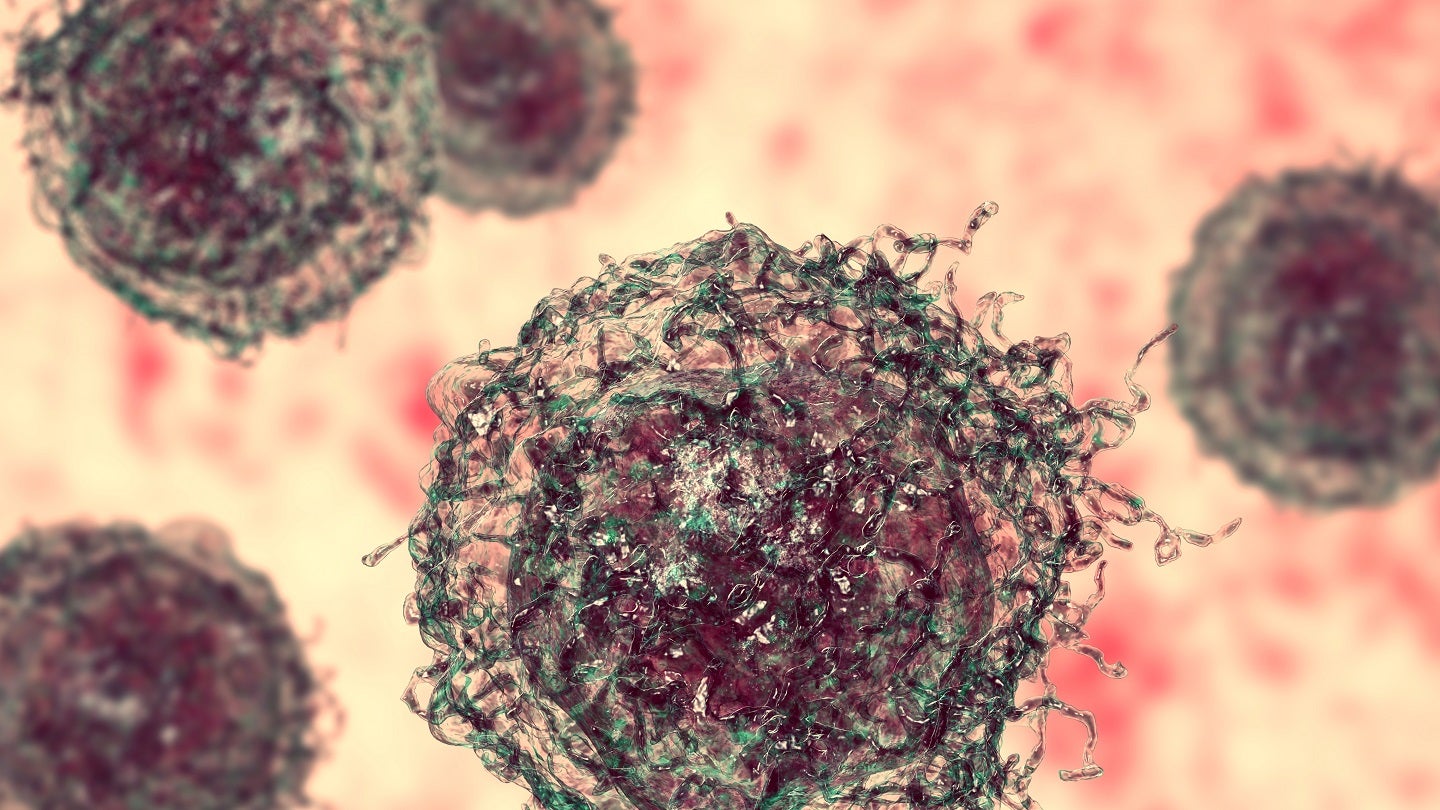
Kronos Bio has reported positive preliminary data from the Phase I dose escalation part of the Phase I/II clinical trial of KB-0742 for the treatment of transcriptionally addicted solid tumours such as sarcoma and MYC-dependent tumours, including ovarian, lung, and triple-negative breast cancers.
The preliminary data featured 28 patients enrolled in a dose escalation study.

Discover B2B Marketing That Performs
Combine business intelligence and editorial excellence to reach engaged professionals across 36 leading media platforms.
They received doses ranging from 10mg up to 60mg of cyclin-dependent kinase-9 (CDK9) inhibitor KB-0742.
The enrolled patients had received a median of 3.5 prior lines of therapy with a median treatment duration of 57 days and a median follow-up of 86 days.
A total of 14 patients were treated with 60mg level, and evidence of target engagement was seen with pSER2 reduction and proportional changes to CDK9 responsive genes.
Of the enrolled participants, myxoid liposarcoma had shown tumour reduction in two patients.

US Tariffs are shifting - will you react or anticipate?
Don’t let policy changes catch you off guard. Stay proactive with real-time data and expert analysis.
By GlobalDataOne had a partial response (per RECIST v1.1) lasting 113 days and the second achieved a 26% reduction in tumour diameters with stable disease.
Nine patients across numerous cancer types had stable disease as the best response and an overall disease control rate of 48% was observed.
KB-0742 also showed dose-proportional exposure and target engagement as well as a 24-hour plasma half-life, allowing intermittent dosing.
Grade 1/2 treatment-emergent adverse events including nausea, vomiting and fatigue were observed in >20% of patients.
No treatment-related deaths were reported, and no grade 3/4 neutropenia was observed during the study.
As the maximum tolerated dose has not been determined in the dose escalation portion, Kronos is continuing enrolment and dosing patients with an 80mg dose of KB-0742 is underway.
Besides, the company is enrolling patients with MYC-dependent and other transcriptionally addicted tumour doses in its dose expansion portion of the study.
Patients in the dose expansion study will be divided into two cohorts who will receive 60mg KB-0742.
Data from this dose expansion part of the study are expected in mid of next year.
Kronos Bio Clinical Development chief medical officer and executive vice president Jorge DiMartino said: “We look forward to advancing the study and reporting additional results, including data from the dose expansion portion of the study, mid-next year.”





